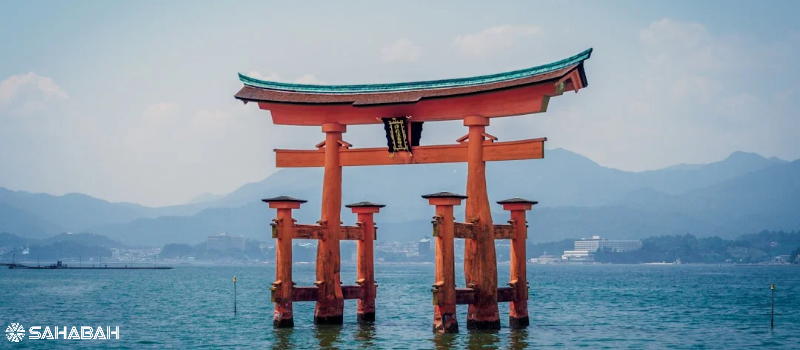Japan’s relationship with Israel is a complex and nuanced one, shaped by a variety of historical, political, and economic factors. While Japan has maintained a generally neutral stance on the Israeli-Palestinian conflict, it has also developed significant ties with both Israel and the Palestinian territories over the years.
Japan’s Historical Stance on the Israeli-Palestinian Conflict
Since the establishment of diplomatic relations in 1952, Japan has consistently called for a peaceful resolution to the Israeli-Palestinian conflict, urging both sides to exercise restraint and engage in constructive dialogue. Japan has maintained a delicate balancing act, seeking to maintain positive relations with both Israel and the Arab nations in the region.
Japan’s Neutral Position and Calls for Peace
Japan has traditionally adopted a neutral position in the Israeli-Palestinian conflict, refraining from taking sides and instead emphasizing the importance of a negotiated settlement based on international law and United Nations resolutions. Japan has consistently called for both parties to exercise maximum restraint and refrain from actions that could escalate tensions.
Japan’s Economic and Diplomatic Ties
While maintaining its neutral stance, Japan has developed significant economic and diplomatic ties with both Israel and the Palestinian territories. Japan has provided development assistance and humanitarian aid to the Palestinians, while also engaging in trade, investment, and technological cooperation with Israel.
Japan’s Role in International Mediation Efforts
Japan has also participated in various international efforts to mediate the conflict, including contributing to the work of the Quartet (the United States, Russia, the European Union, and the United Nations) and supporting the Middle East peace process. However, Japan’s role has been relatively limited compared to other major international players.
Japan’s Current Policies and Engagement with Israel
In recent years, Japan’s engagement with Israel has deepened, particularly in the areas of trade, investment, and technological collaboration.
Japan’s Trade and Investment Relationships with Israel
Japan has become an important trading partner and investor for Israel, with bilateral trade and investment flows steadily increasing over the past two decades. Japanese companies have established a presence in Israel, particularly in the high-tech and renewable energy sectors, seeking to access the country’s innovative capabilities.
Japan’s Support for Israeli Technological and Scientific Advancements
Japan has also actively supported Israeli technological and scientific advancements, participating in joint research and development projects in areas such as cybersecurity, artificial intelligence, and space exploration. This collaboration has been seen as mutually beneficial, allowing both countries to leverage their respective strengths and expertise.
Japan’s Participation in Joint Projects
One notable example of Japan-Israel cooperation is the joint development of the Arrow missile defense system, which has been a significant component of Israel’s defense capabilities. This collaboration has helped to strengthen the security and defense ties between the two countries, despite Japan’s generally cautious approach to military engagement in the region.
Factors Influencing Japan’s Approach to Israel
Japan’s approach to Israel is shaped by a complex set of factors, including its reliance on Middle Eastern oil, its desire for regional stability, and domestic political considerations.
Japan’s Reliance on Middle Eastern Oil
As a resource-poor country, Japan is heavily dependent on imports of oil and natural gas from the Middle East, including from Arab nations that have historically been critical of Israel. This economic reality has been a key factor in Japan’s efforts to maintain a balanced and cautious approach to the Israeli-Palestinian conflict.
Domestic Political Considerations in Japan
Domestic political factors, such as public opinion and the pacifist sentiments prevalent in Japan, have also influenced the government’s approach to Israel. There have been debates within the Japanese government about the extent to which Japan should engage with Israel, particularly on security and defense issues.
Japan’s Balancing Act in the Middle East
Japan’s need to balance its relationships with both Israel and the Arab nations in the region has been a significant constraint on the depth and scope of its engagement with Israel. Japan has sought to avoid taking sides in the conflict, fearing that a more assertive pro-Israel stance could jeopardize its relationships with other key players in the Middle East.
Analyzing the Depth of Japan-Israel Cooperation
While Japan’s relationship with Israel has deepened in recent years, the scope and intensity of the cooperation between the two countries remain limited in certain areas.
Security and Defense Collaboration
Japan’s military cooperation with Israel has been relatively limited, with the two countries engaging primarily in areas such as joint exercises, intelligence sharing, and limited technology transfers. Japan’s pacifist constitution and its cautious approach to military engagement in the region have been significant constraints on the depth of security and defense collaboration.
Economic and Technological Partnerships
In contrast, the economic and technological partnerships between Japan and Israel have been more robust. Japan has become an important trading partner and investor for Israel, particularly in high-tech industries, renewable energy, and agriculture. The two countries have also collaborated on various research and development projects, leveraging each other’s strengths and expertise.
Cultural and Educational Exchanges
In addition to economic and technological ties, Japan and Israel have also been working to deepen their cultural and educational exchanges. This includes student and researcher exchanges, language programs, and efforts to promote mutual understanding and people-to-people connections between the two countries.
Challenges and Constraints in the Japan-Israel Relationship
Despite the growing engagement between Japan and Israel, there are several challenges and constraints that have limited the depth and scope of the relationship.
Balancing Relationships in the Middle East
One of the key challenges for Japan has been the need to balance its relationships with Israel and the Arab nations in the region. Japan’s desire to maintain positive relations with its key oil suppliers and trading partners in the Middle East has often led it to adopt a cautious and neutral stance on the Israeli-Palestinian conflict.
Domestic Political Considerations in Japan
Domestic political factors, such as public opinion and pacifist sentiments, have also played a role in shaping Japan’s approach to Israel. There have been debates within the Japanese government about the extent to which Japan should engage with Israel, particularly on security and defense issues.
Limitations in the Scope of Japan-Israel Cooperation
Despite the growing economic and technological ties, the scope of Japan-Israel cooperation remains limited in certain areas, such as security and defense. Japan’s reluctance to take a more assertive stance on regional security issues and the constraints imposed by its constitutional and legal frameworks have been significant factors in this regard.
The Future Trajectory of Japan-Israel Relations
As the global landscape continues to evolve, the future trajectory of Japan-Israel relations will likely be shaped by a range of factors, both regional and international.
Potential Areas of Deepening Cooperation
Going forward, there may be opportunities for Japan and Israel to deepen their cooperation in areas such as economic and technological partnerships, cybersecurity, and space exploration. The two countries may also explore ways to expand their cultural and educational exchanges, further strengthening people-to-people connections.
Factors Shaping the Future Relationship
The future of Japan-Israel relations will be influenced by a variety of factors, including evolving regional dynamics in the Middle East, domestic political changes in both countries, and broader global trends and developments. The ability of the two countries to navigate these complex challenges will be crucial in determining the trajectory of their partnership.
Scenarios for the Future of Japan-Israel Relations
Depending on how these various factors play out, the future of Japan-Israel relations could take different paths. This could range from a continuation of the current cautious and balanced approach to a more proactive and multifaceted partnership, with the specific outcome dependent on the interplay of various geopolitical, economic, and domestic considerations.
FAQ: Does Japan Support Israel?
Japan has had friendly relations with Israel since 1952. Japan has been a consistent supporter of Israel, and has maintained diplomatic ties with the state of Israel and the Palestinian Authority. Japan has also engaged in various business and trade activities with Israel over the years.
How does Japan approach the Israel-Hamas conflict?
Japan has a diplomatic approach to the Israel-Hamas conflict. Japan supports a peaceful resolution to the conflict through dialogue and negotiations. Japan has also provided humanitarian aid to the Gaza Strip to help alleviate the suffering of the people in the region.
What role does the Japanese government play in foreign affairs related to Israel?
The Japanese government, specifically the Ministry of Foreign Affairs, is responsible for managing Japan’s foreign relations, including those with Israel. The Minister for Foreign Affairs leads Japan’s diplomatic efforts and represents the country in discussions and negotiations with other nations.
Have Japanese leaders visited Israel in recent years?
Yes, Japanese leaders, including Prime Minister Shinzo Abe and Foreign Minister Toshimitsu Motegi, have visited Israel in recent years to strengthen bilateral ties and promote cooperation in various sectors such as trade, technology, and culture.
How do the Japanese public view the Israel-Hamas conflict?
The Japanese public generally follows the news related to the Israel-Hamas conflict and supports efforts towards achieving peace and stability in the region. Many Japanese people value diplomacy and dialogue as means to resolve conflicts peacefully.
Does Japan provide any aid or support to Israel during times of conflict?
Japan has expressed solidarity with Israel during times of conflict and has provided humanitarian aid to support the affected populations. Japan has also supported international efforts to promote peace and stability in the Middle East region.
How does Japan’s stance on the Israel-Palestine conflict influence its foreign policy?
Japan’s stance on the Israel-Palestine conflict is based on promoting peaceful coexistence and dialogue between the two parties. Japan aims to contribute to the resolution of the conflict through diplomatic means and by supporting initiatives that lead to lasting peace in the region.





